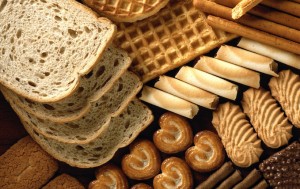
They are divided into the following types:
- Macronutrients: nutrients needed in large quantities for the body, in dozens of grams per day. The main components are protein, carbohydrates, fats, which provide energy and material for the update of the organism. Also, macronutrients include water. The person has to drink two liters daily;
- Micronutrients: nutrients needed in a small amount for the body – in fractions of grams (milligrams, micrograms). These are vitamins and minerals involved in the process of energy assimilation. They coordinate various functions in the body’s growth and development processes.
Moreover, there is another classification:
- Essential Nutrients (irreplaceable) are essential nutrients for the body, lack or absence of which can become a cause of disease, and prolonged deficiency leads to the death of the organism. Essential nutrients include some amino acids, minerals and vitamins;
- Replaceable nutrients are produced by the body (in the required amount or partially) by means of intestinal microorganisms – microflora. There are a number of vitamins, amino acids and vitamin-like substances among them. However, a certain amount of replaceable nutrients must be supplied with food.
Food Ingredients: Vitamins
Vitamins are biologically active organic substances with a vegetable or animal origin. They were discovered in 1911. Currently, scientists synthesize 21 vitamins and apply them for prophylactic and therapeutic purposes. Vitamins are classified into two groups:
Vitamins are classified into two groups:
- water-soluble (biotin, C, PP, pantothenic and folic acid, B1, B2, B12, B6);
- fat-soluble (A, D, E, K, F).
The use of vitamins must be carried out regularly and in a balanced composition and quantity.
Vitamins enter the body in two ways:
- exogenous – with food and drugs (BAA);
- endogenous – synthesized by symbiotic bacteria (this method has many weak points).
Lack of vitamins may be linked to several factors:
- the low quality of the products;
- a poor diet;
- thermal processing;
- digestive tract diseases;
- unbalanced intake of vitamins;
- a seasonal factor.
Vitamins have an effect on growth and development, coordinate the metabolism, protect from diseases and adverse environmental factors, affect mental and physical performance.
Vitamin deficiency affects the state of mental health and youth much more seriously than any other factors, as the cause of most any disease may be the lack of vitamins. Balanced and decent nutrition is provided by a variety of biologically active additives.
Nutrition components: Minerals
 Minerals are essential elements. Their lack or excess may provoke the immediate development of diseases.
Minerals are essential elements. Their lack or excess may provoke the immediate development of diseases.
The functions of minerals in the body include:
- a plastic function;
- participation in the exchange processes;
- the impact on the blood system and the immune system;
- acid-alkaline balance maintenance.
Deficiency of minerals can cause the development of serious diseases:
- deterioration of the immune system;
- diseases of the skin, nails and hair;
- allergies;
- diabetes and obesity;
- hypertension;
- pathology of blood;
- scoliosis, low back pain, osteoporosis, and many others.
And the human body has a better adaptation to an excess, rather than a lack of mineral elements. The deficit initially provokes redistribution of reserves, later -development of diseases and premature aging. That lack of minerals is the main mechanism of aging and the leading cause of death.
Food Ingredients: Water
 Water is a “solvent” governing all the functions in the body, making up 65 – 75% of the total body mass.
Water is a “solvent” governing all the functions in the body, making up 65 – 75% of the total body mass.
The water requirement for an adult is defined as 40 ml per 1 kg body weight – from 2.3 to 2.7 liters per day. The organism receives from to 1.2 liters of water with food and as a result of metabolism.
The best method of water consumption is steady reception throughout the day: 6 – 8 glasses in a certain order. Canadian Pharmacy Mall advice a water-based diet for the general condition improving. Water is especially important for a healthy nutrition to lose weight.
The lack of water in the body often causes premature aging, as chronic dehydration is the primary source of most pathologies. Many people believe that such beverages as tea, coffee, alcohol, soda can satisfy the body’s need for water. They make a serious mistake because these beverages contain dehydrating agents – they do not only take out water but affect the water reserves in the body. Water is the cheapest drug for a dehydrated body.
The Power Components: Carbohydrates
 Carbohydrates are a very large component of its mass. They may be complex and simple, digestible and indigestible. The main source of carbohydrates is the food of vegetative origin. A healthy nutritious diet should include carbohydrates necessarily.
Carbohydrates are a very large component of its mass. They may be complex and simple, digestible and indigestible. The main source of carbohydrates is the food of vegetative origin. A healthy nutritious diet should include carbohydrates necessarily.
Digestible carbohydrates are an important energy source for the body, burnt at 100%, not forming a slag.
- The average daily carbohydrates amount is from 350 to 500 g. It is caused by the type of activity and energy expenditure;
- The minimum dose is the amount is 50 – 60 g. The further reduction leads to metabolic disturbances.
Excess carbohydrates provoke the development of obesity, diabetes, atherosclerosis and other diseases.
The best variant among products containing carbohydrates is natural, unprocessed vegetables, fruits and berries.
Power Components: Fats
 Fats are required by the body in large quantities. Fatty acids and glycerol are formed during fat digestion.
Fats are required by the body in large quantities. Fatty acids and glycerol are formed during fat digestion.
Fats are the main energy source for the body, the material for the construction of cellular membranes. Furthermore, fats coordinate metabolic processes, they contain mineral substances, vitamins and enzymes.
Saturated fats are classified into:
- saturated;
- unsaturated (omega-3, omega – 6, omega – 9);
- monounsaturated. Unsaturated fats are vital for the body, as they can only come from outside.
The conventional fat norm in the diet is 80 – 100 grams a day for young, healthy and working hard people. For the elderly and less mobile people this value makes 20 – 30 grams.
The lack of fat in the diet leads to the development of various diseases, including:
- mental illness;
- depression;
- memory loss;
- infertility;
- impotence;
- osteoporosis;
- diabetes;
- Alzheimer’s disease;
- cancer, etc.
Power Components: Proteins
Proteins represent the main food component.  They are one of the most complex nutrients the body needs in large quantities (tens of grams per day).
They are one of the most complex nutrients the body needs in large quantities (tens of grams per day).
Sources of proteins are plant and animal products, but the products of animal origin have a higher biological value in connection with a large number of amino acid ratio.
The role of proteins in the body is extremely important – protein functions are numerous:
- building;
- catalytic;
- transport;
- contractile;
- protective;
- homeostatic;
- energetic.
In the process of growing and aging the need for proteins reduces, as the primary as energetic function becomes the primary one.
Protein excess (protein overfeeding), as well as its lack, has a negative impact on the human body, as it may result in various diseases development. Excess protein provokes a liver, kidney, intestines implications. Lack of protein may lead to a children’s dystrophy.
Thus, the main components, needed in different amounts and ratios are: water, vitamins, carbohydrates, minerals, fats and proteins.
It’s desirable to work out a healthy nutrition plan
That is, there is a possibility to organize your diet with all the basic food ingredients in the right proportions and quantities that will eliminate and prevent the development of diseases, and you will stay young, beautiful and healthy as long as possible!




